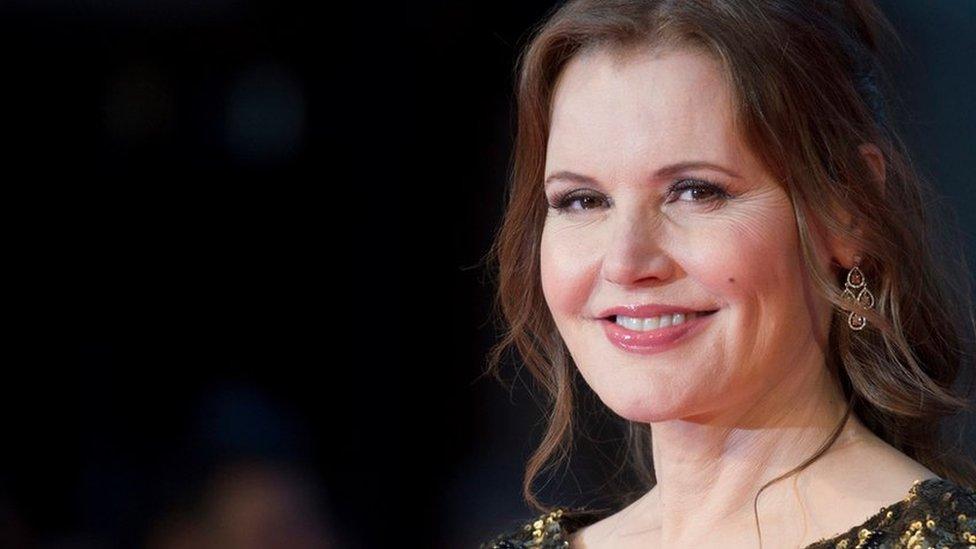Thelma & Louise stars recall male backlash to film 30 years on
- Published
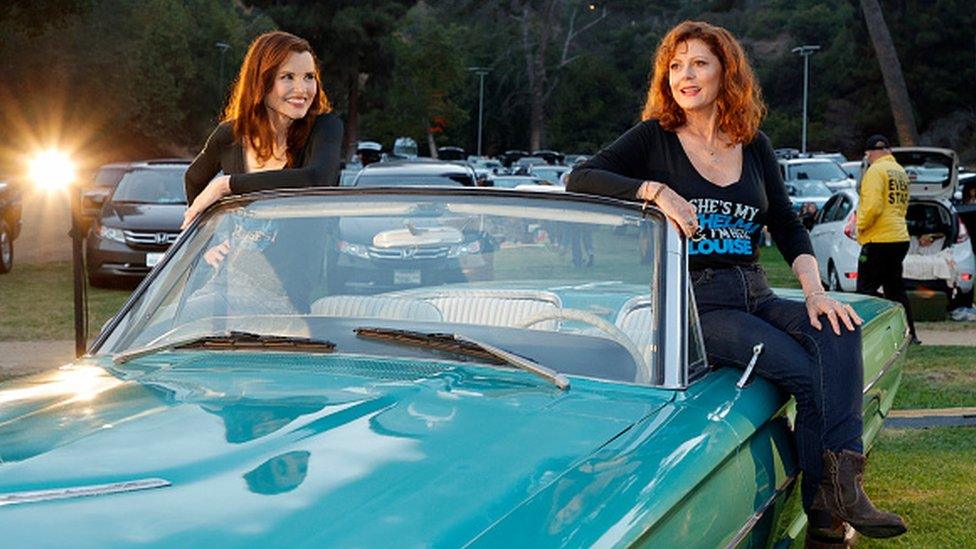
Geena Davis and Susan Sarandon attend a charity screening of Thelma & Louise at the Greek Theatre in Los Angeles, California
Some 30 years ago, Geena Davis and Susan Sarandon were propelled to new heights of stardom for their leading roles in crime drama Thelma & Louise.
In the 1991 film, the American actors played two women whose characters' journey challenged traditional notions of femininity.
Now Hollywood royalty, the pair attended a special screening to mark the film's 30th anniversary on Friday.
At the event in Los Angeles, Davis and Sarandon considered the film's impact.
When the film was released, the media predicted there were "going to be so many movies starring women, about women, female road pictures, whatever", Davis said in a Q&A session, according to the Hollywood Reporter, external.
"I'm thinking, hot dog, let's sit back and wait for all this magic change to happen. We're still waiting. It really did not happen. It seems like every five years or so, there's another movie starring women that's a huge hit and people say, 'Well now certainly everything is going to change,' and it really hasn't."
The film did change the lives of Davis, 65, and Sarandon, 74, though.
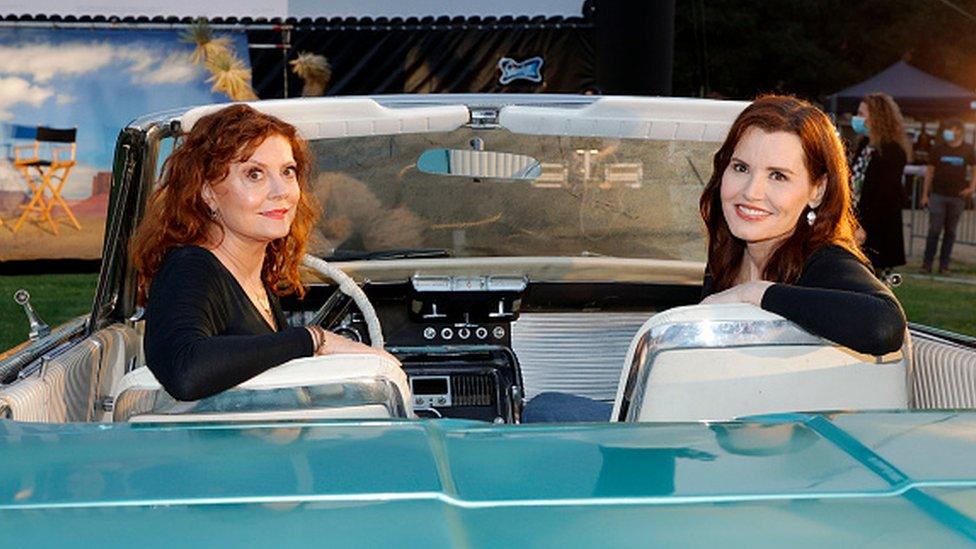
Sarandon (L) and Davis (R) have won multiple awards for their acting
Directed by Ridley Scott, the film was a critical and commercial success, winning Best Original Screenplay at the Academy Awards, where it received six nominations.
Davis and Sarandon went on to continue their illustrious careers, each collecting numerous accolades for their acting.
Seen as a feminist trailblazer by many, Thelma & Louise only burnished their credentials.
For those who have not seen it, the film casts Davis as Thelma, a meek housewife whose friend Louise - who is played by Sarandon - convinces her to come on an impulsive road trip.
But on the road, a series of unfortunate circumstances soon get them in trouble with the law.
When Louise fatally shoots a man who tries to rape Thelma at a bar, the pair decide to flee to Mexico, leaving their old humdrum lives behind.
Spoiler alert: the film ends in dramatic fashion, culminating in a police chase that sees Thelma and Louise kiss before driving off a cliff at the Grand Canyon.
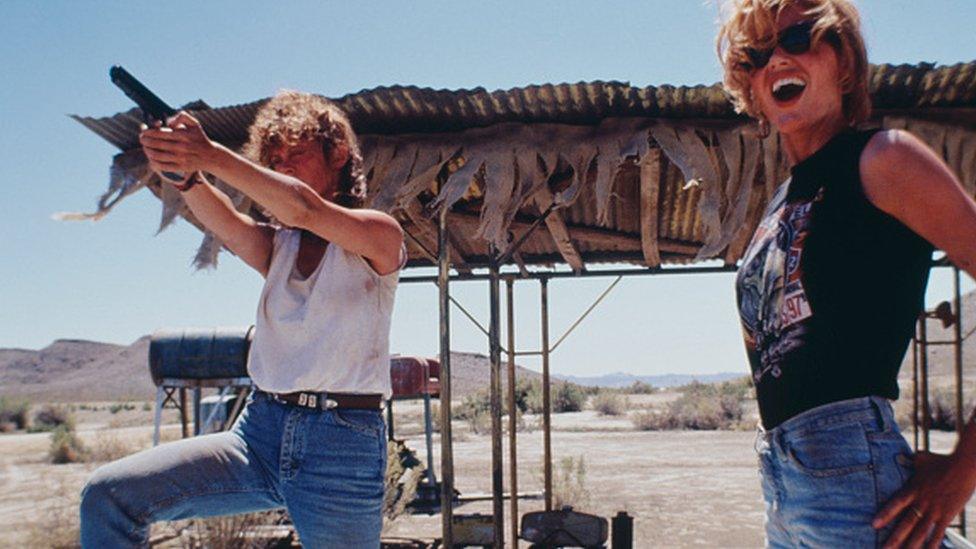
Thelma and Louise spend most of the film fleeing from the law
The film's portrayal of Thelma and Louise as plucky, independent women prepared to risk it all for friendship was praised as a step forward for female empowerment in Hollywood.
Yet some male critics took exception to the depiction of violence against men in the film.
"I completely underestimated that we were backing into territory held by white heterosexual males," Sarandon said at Friday's event.
"They got offended and accused us of glorifying murder and suicide and all kinds of things. It didn't seem like a big deal, it seemed like it was unusual that there would be a woman that you could be friends with in a film."
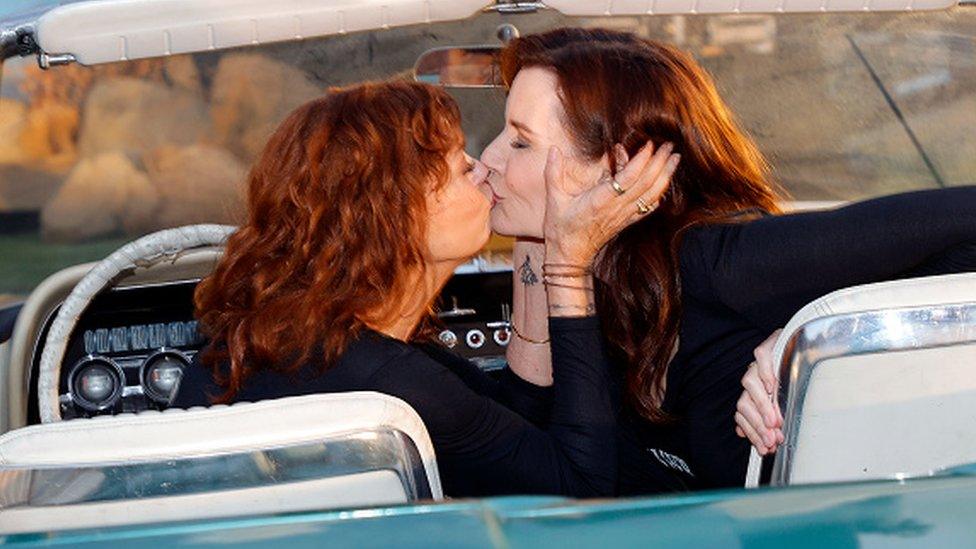
Sarandon and Davis recreated the famous kiss scene in Thelma & Louise
For Davis, the backlash was worth it, not least for the degree to which the film inspired women.
"The reaction from women was so strong and nothing I'd ever seen before. It made me realise how few opportunities we have for women to come out [of] a movie feeling empowered by the female character," Davis was quoted as saying by Variety magazine, external.
"It made me think, 'well, I'm really going to think about what are the women in the audience going to think about my character from now on.'"

You also be interested in:
Geena Davis talks about the success of the film Thelma and Louise.
Related topics
- Published20 June 2021
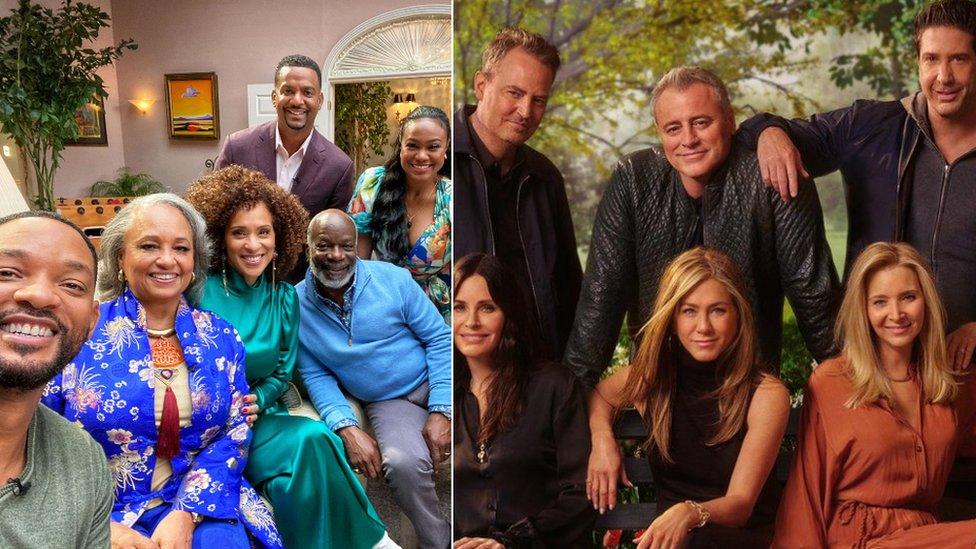
- Published8 March 2018
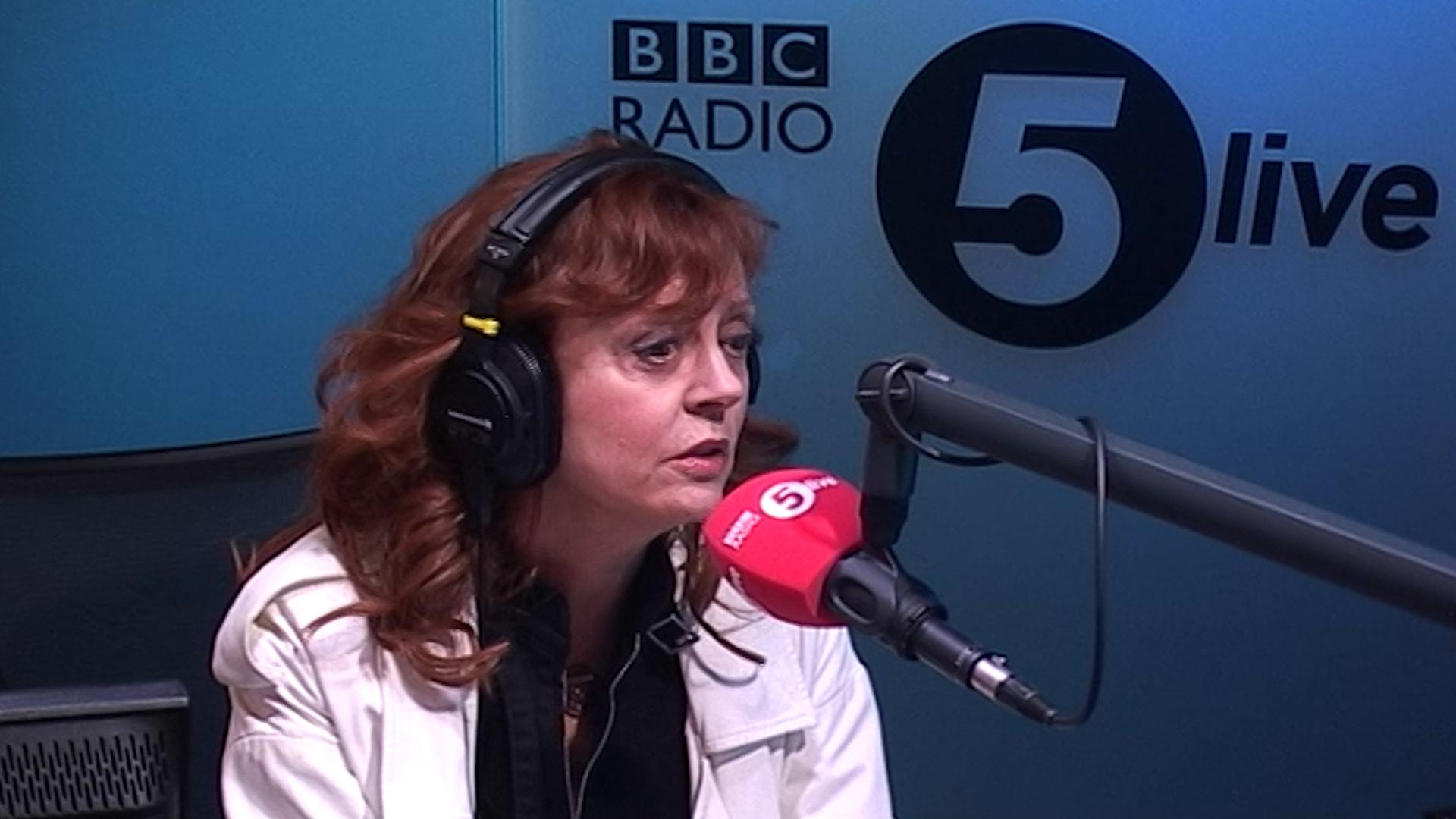
- Published7 September 2019
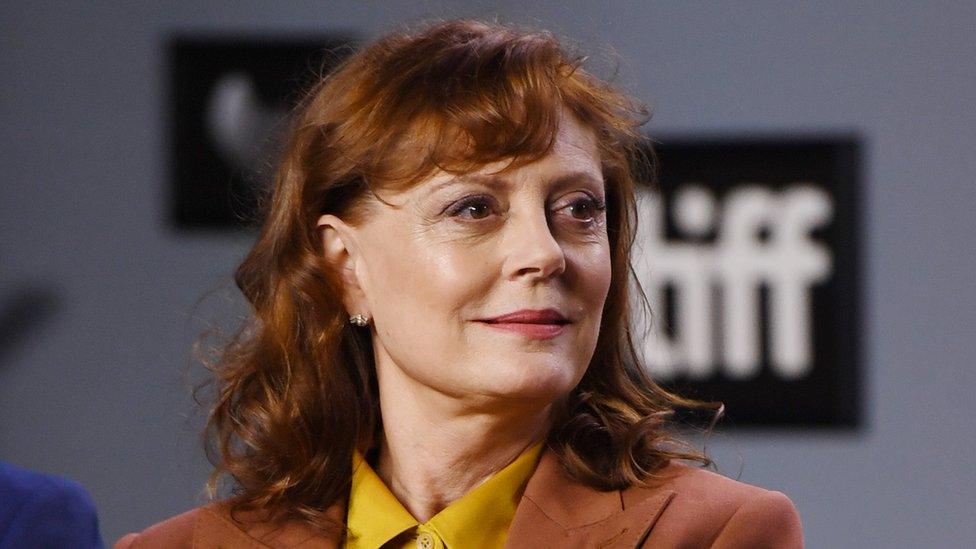
- Published12 October 2015
